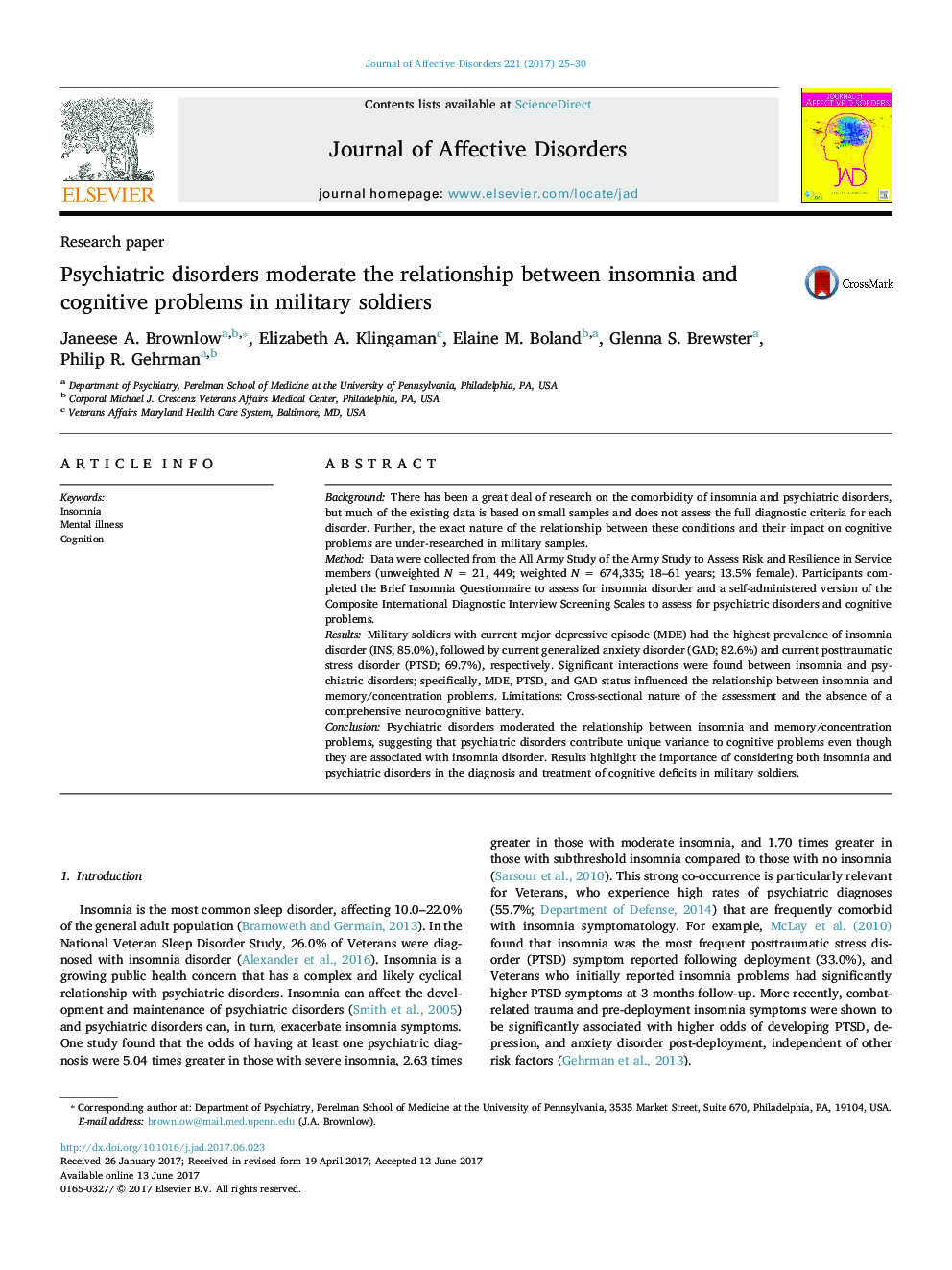| کد مقاله | کد نشریه | سال انتشار | مقاله انگلیسی | نسخه تمام متن |
|---|---|---|---|---|
| 5721987 | 1608104 | 2017 | 6 صفحه PDF | دانلود رایگان |
- Insomnia is highly prevalent in soldiers with current psychiatric disorders.
- Depression, GAD, and PTSD had the highest prevalence of comorbid insomnia disorder.
- Depression, PTSD, and GAD moderated the relation between insomnia and cognition.
BackgroundThere has been a great deal of research on the comorbidity of insomnia and psychiatric disorders, but much of the existing data is based on small samples and does not assess the full diagnostic criteria for each disorder. Further, the exact nature of the relationship between these conditions and their impact on cognitive problems are under-researched in military samples.MethodData were collected from the All Army Study of the Army Study to Assess Risk and Resilience in Service members (unweighted N = 21, 449; weighted N = 674,335; 18-61 years; 13.5% female). Participants completed the Brief Insomnia Questionnaire to assess for insomnia disorder and a self-administered version of the Composite International Diagnostic Interview Screening Scales to assess for psychiatric disorders and cognitive problems.ResultsMilitary soldiers with current major depressive episode (MDE) had the highest prevalence of insomnia disorder (INS; 85.0%), followed by current generalized anxiety disorder (GAD; 82.6%) and current posttraumatic stress disorder (PTSD; 69.7%), respectively. Significant interactions were found between insomnia and psychiatric disorders; specifically, MDE, PTSD, and GAD status influenced the relationship between insomnia and memory/concentration problems. Limitations: Cross-sectional nature of the assessment and the absence of a comprehensive neurocognitive battery.ConclusionPsychiatric disorders moderated the relationship between insomnia and memory/concentration problems, suggesting that psychiatric disorders contribute unique variance to cognitive problems even though they are associated with insomnia disorder. Results highlight the importance of considering both insomnia and psychiatric disorders in the diagnosis and treatment of cognitive deficits in military soldiers.
Journal: Journal of Affective Disorders - Volume 221, 15 October 2017, Pages 25-30
